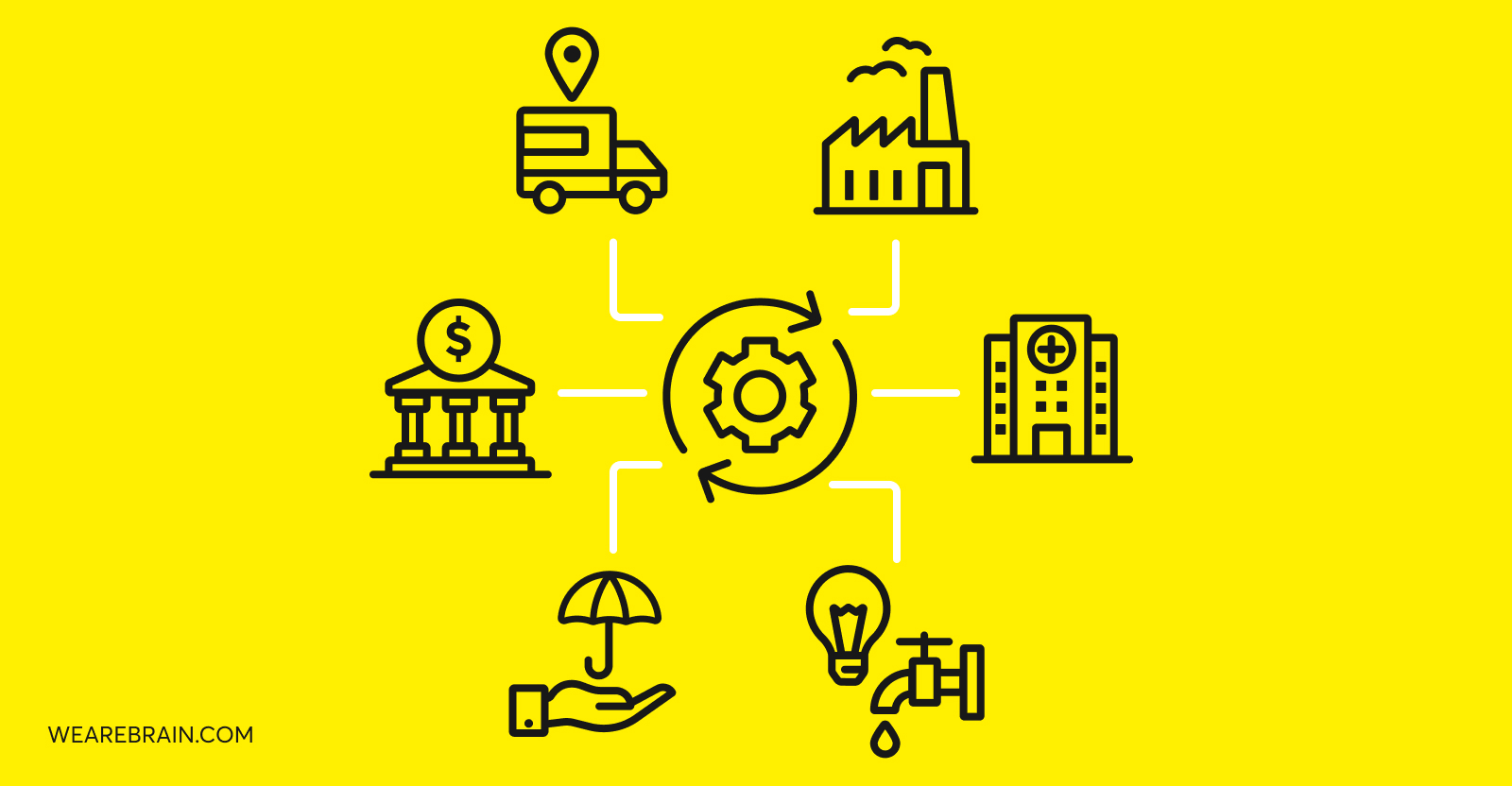6 major industries adopting RPA

Unpack the transformative impact of Robotic Process Automation (RPA) across diverse industries, driving unprecedented efficiency and accuracy.
Find out everything you need to know about Artificial Intelligence and automation, and their applications in the working world with our new book, Working Machines – An Executive’s Guide to AI and Intelligent Automation. It is available on Amazon, Google Books, Apple Books and Audible.
Key takeaways
- Wide RPA Adoption: Significant growth in RPA usage across industries for operational efficiency.
- Banking and Finance: Enhances data processing and compliance accuracy.
- Insurance: Streamlines claims and policy management.
- Healthcare: Focuses resources on patient care by reducing administrative tasks.
- Manufacturing: Boosts supply chain and back-office efficiency.
- Transport and Logistics: Automates order management for improved service delivery.
- Utilities: Increases billing accuracy and customer service efficiency.
- Cross-Industry Benefits: RPA optimizes productivity and accuracy, key for digital transformation.
RPA is here to stay
The adoption of Robotic Process Automation (RPA) across multiple global industries is rising at a breakneck speed. RPA’s market revenues are expected to surpass 2.9 billion U.S. dollars worldwide this year, with a projected compound annual growth rate (CAGR) of 40.6% from 2020 to 2027. These figures show that the demand for automation in business is rising as business leaders are becoming more aware of the extensive benefits RPA provides.
SME’s through to multinational enterprises are adopting smart automation technologies to drive efficiency and performance in the workplace. And it appears that RPA’s benefits are being enjoyed across multiple industries, from finance through to utilities.
Here is a list of the major industries that are currently reaping the rewards of RPA adoption.
1. Banking and Finance
According to Grand View Research, the banking and financial services industries were market leaders in RPA adoption in 2019, accounting for a 29% share of the global revenue. This is due to the nature of these industries which require streamlined and accurate handling of large volumes of sensitive data. Many of the business tasks associated with the banking and finance industries can easily be automated: data entry, compliance regulations, statement processing, balance sheets, etc. By automating these time-consuming processes, these industries are boosting their overall speed and efficiency, while benefiting from comprehensive analytical insights.
With large amounts of documents, templates, deposits, withdrawals, and various transactional processes required, the banking industry is using RPA to effectively and securely manage their daily operations. Quicker processing times, eradicating human error, and providing easier access to information is serving to boost customer experience and loyalty. RPA is also assisting with the stringent and complex compliance regulations which dominate the industry, and it allows for easier compliance processes and audits with 100% accuracy. Additionally, RPA helps with synthesising and processing large volumes of data and transactions which need to be migrated from outdated legacy systems.
2. Insurance
Insurance companies are notoriously swamped with back-office tasks, from claims processing and policy quotes, through to updates to underwriting and payouts. RPA streamlines this high volume of repetitive admin tasks far more efficiently and accurately than human counterparts. Legacy systems require updates to meet the increasing demand which RPA handles in the background while employees can focus on more complex processes.
Insurance companies need to cater to the demands of their customers while handling large amounts of rigid legacy applications to operate their business processes. To prevent backlog, insurance businesses are using RPA to speed up most back-office functions to not only retain but also grow their client base. RPA provides faster claims management, superior policy administration, deep customer insights and analytics which serve to improve the overall customer experience.
3. Healthcare
The healthcare industry is arguably the most demanding and regulated industry on our list, and it has an acute need for efficiency and accuracy for the handling of large volumes of sensitive data. By reducing the amount of back-office tasks, patients are able to receive more value-based care and attention as the administrative pressures on healthcare workers is diminished.
Shorter waiting times, more detailed insights into patients’ histories, and digitisation of patient data create a more efficient healthcare process which dramatically improves the patient experience. RPA is improving the healthcare industry’s operational efficiency significantly, resulting in more time to focus on its primary objective: patient care.
4. Manufacturing
Manufacturing companies already deploy industrial robots to complement their human workers in the production line. But the need for software bots to streamline their operational processes and back-office tasks is high. RPA facilitates various reporting and administrative tasks, and its adoption in the manufacturing industry helps to strengthen supply chain procedures to bridge the gap between daily administrative operations and hands-on assembly line manufacturing. The result is a boost in efficiency which translates to increased revenue, making the manufacturing industry’s back-office systems equally as efficient as its factory assembly lines.
5. Transport and Logistics
In order to stand out among competitors, transport and logistics companies are leveraging the speed and efficiency of RPA to streamline their business processes to bolster the efficiency of their end-to-end services. RPA increases productivity by automating front and back-office processes, such as streamlining order management, optimising order distribution cycles, and linking external supply chain applications to internal tools. Not only do these processes need to be fast and efficient, but they also need to be accurate as this industry accounts for time down to the second – time equals money in every sense. Transport and logistics businesses deploying automation within their business operations are reaping the rewards of efficient and on-time deliveries: happier clients and customer loyalty leading to increased revenue.
6. Utilities
Utility companies (electric, gas, water, etc.) deal with high volumes of monetary transactions every day, resulting in a demand for RPA implementation in accounts and billing departments. In addition, RPA is also being used to accurately and efficiently assist with meter-readings – a cornerstone of the industry. With automated meter-readings, utility companies are able to get precise numbers and bill accordingly, removing the presence of human error and, in more nefarious cases, the tampering of meters to display lower readings.
RPA also assists in common administrative processes such as debt recovery, data integration and security, as well as customer service. It assists with managing high volume spikes due to seasonal usage of power, allowing employees to handle customer queries and complaints during these busy times.
Summary
The heightened demand for RPA implementation on a global business scale is clearly evident in the number of industries utilising the technology to streamline operational procedures. There is no doubt of RPA’s ability to assist in providing overall business process efficiency across the board with regards to back-office administrative functionalities. But as you can see, RPA benefits these major industries in far-reaching ways specific to the requirements of each. Any industry reliant on computers for any small or large aspect of operations will benefit tremendously from the speed, accuracy, and efficiency – and overall dependability – of RPA.
Jack Myasushkin
Working Machines
An executive’s guide to AI and Intelligent Automation. Working Machines takes a look at how the renewed vigour for the development of Artificial Intelligence and Intelligent Automation technology has begun to change how businesses operate.







